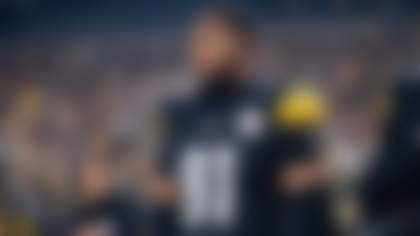The NFL has yet to announce disciplinary measures against ex-defensive coordinator Gregg Williams, head coach Sean Payton, general manager Mickey Loomis and the rest of the perpetrators in the New Orleans Saints' "bounty" scandal; nor has Commissioner Roger Goodell revealed a timeline for when he expects to make a decision on any penalties.
But once he does, Hall of Fame coach and co-chairman of the NFL's safety panel John Madden expects Goodell to drop the hammer.
"When (Goodell) does something and he gets them -- and I don't know what the discipline is -- but I'll tell you what, when he puts some teeth in the rules or whatever he's going to do, it won't happen again," Madden said Tuesday in an interview with The Los Angeles Times.
Madden said that whatever penalty Goodell hands out will be enough of a deterrent to dissuade anyone from replicating a "pay for performance" system while Goodell is the league's commissioner.
"It will be gone," Madden said. "You'll look back years from now and say, 'Remember when they used to do that?' They won't do it anymore."
The NFL revealed last Friday that the Saints operated a "pay for performance" program administered by Williams from 2009 through 2011, and the system included $1,000 for a "cart-off" and $1,500 for a knockout hit.
"The cart-off and knockout and those things, that surprised me," Madden said. "I didn't think that was in the culture. Obviously, it doesn't belong in the culture, and I know the Commissioner is going to get it out.
"If you're going to hit someone, it's usually a quarterback. So I think we have to really watch the quarterbacks and protect them. I know all about the 'they wear skirts' BS, but we really have to protect them. Because after they throw the ball, they're really vulnerable."
Madden, chairman of the coaches' subcommittee of the competition committee, also told The Times that the league is considering making the referee solely responsible for watching the quarterback throughout the entirety of the play.
"I don't know that the referee can be watching holding on the offensive line and get back to the quarterback," he said. "I think watching the quarterback is a full-time job."



